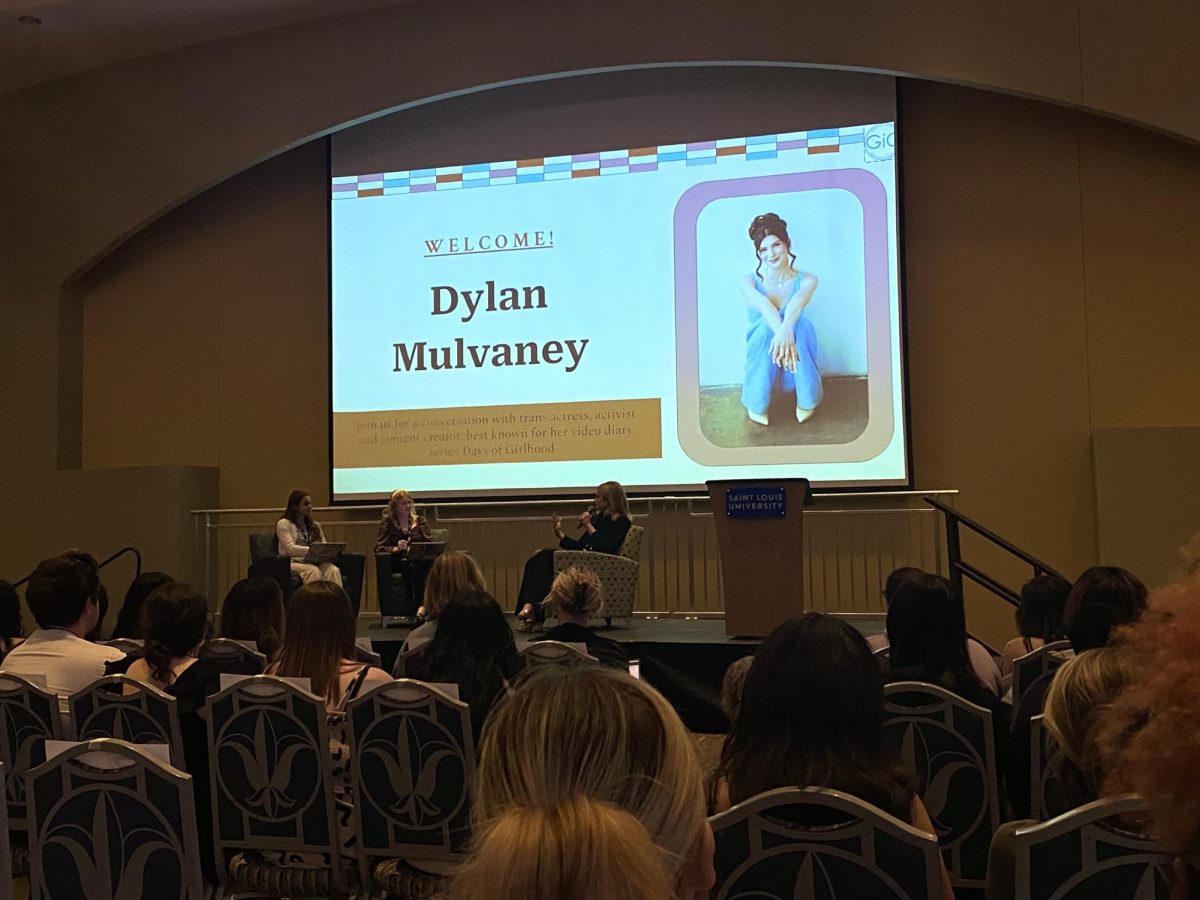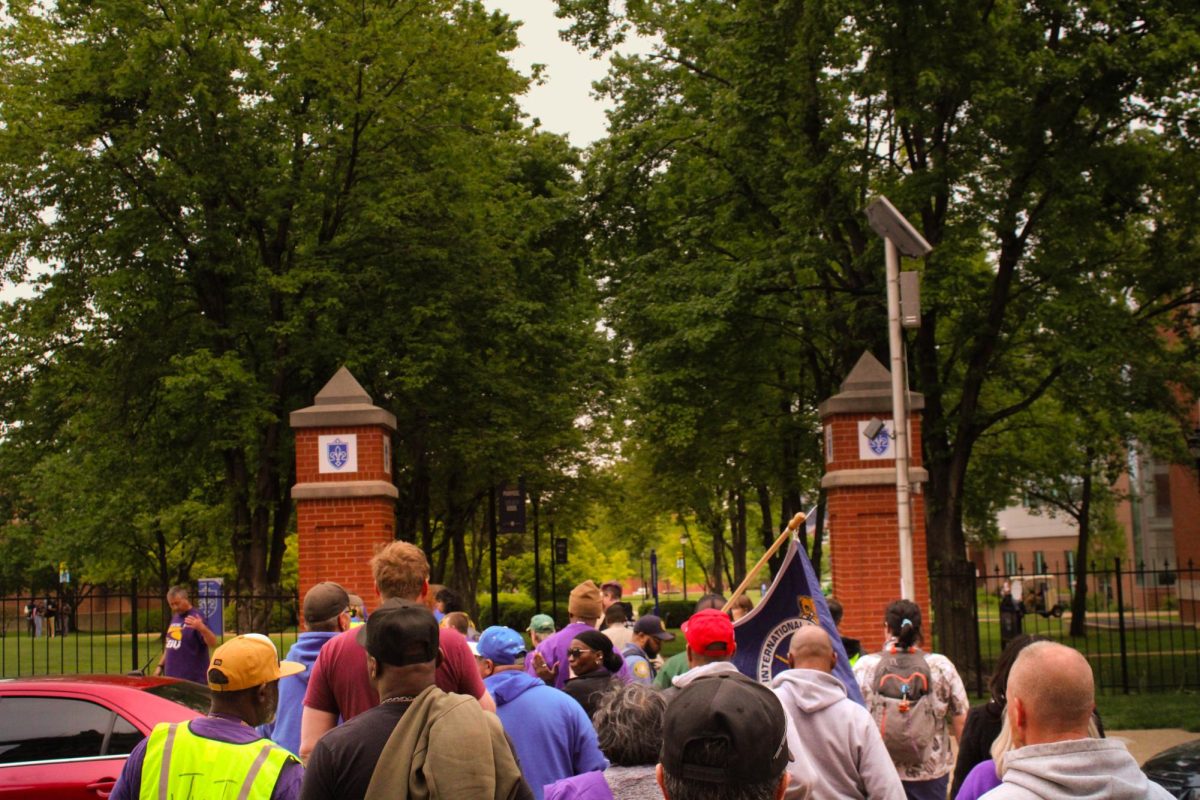Last week, on Tuesday night, Aug. 12, Walter Jackson Ong, S.J.,
an internationally-revered scholar of linguistic thought and
career-long member of the Saint Louis University community, died at
St. Mary’s Hospital in Richmond Heights, where he arrived a few
days earlier suffering from pneumonia. He was 90.
After completing his doctoral degree at Harvard University, he
joined the SLU English department in 1955.
Over the next 36 years as a faculty member, he also served as
professor of humanities in psychiatry at the medical school and was
appointed in the 1980s as University professor of humanities.
His work, which often focused on the progress of methods of
human communication in relation to human evolution itself, earned
him recognition as an international pioneer of communication
theory. He was published more than 400 times and his 1982 book,
Orality and Literacy: The Technologizing of the Word, is one of his
more influential works, having been translated into a dozen
languages.
Ong also served in 1978 as president of the Modern Language
Association of America, which English Chair Sarah van den Berg
described as “the highest honor a person can receive in the
academic world.”
In 1967, President Lyndon Johnson appointed him to the White
House task force on education, and from 1968 to 1974 he served on
the National Council on the Humanities.
As a Jesuit priest, Ong also devoted his study to the Catholic
Church, publishing two books during his early career that offered
both praise and criticism–as well as foreseeing many of the
changes that the Vatican II Council would affect. He was also an
early proponent of updating the Church’s view of the universe, a
position that developed from his willingness to embrace new
theories and technologies as he watched human civilization
change–as it did with great rapidity during his lifetime.
And Ong’s work did not end when he retired. In 2000, at the age
of 87, an essay he published received a national award from the
Media Ecology Association. “He was active as a scholar very late in
his life,” said van den Berg.
Although he was based in the English department, Ong was a
scholar who could not be restricted to one single field.
As a testament to that, a conference SLU is planning for Spring
2005, “Rhetoric Across the Universe: The Legacy of Walter J. Ong,
S.J.,” looks to incorporate 12 different academic departments,
including some in the schools of law and medicine.
“But his scholarship, his teaching–they were all part of his
apostolate as a priest,” said Tom Walsh, associate professor of
English, former student and friend of Ong’s for 30 years. “He was
always a priest first,” Walsh said.
Van den Berg echoed: “He believed that intellectual work is
meaningful; that it was, I think, his ministry. But he also worked
with deep conviction as a priest. He was close to many, many people
who were not at all intellectual.”
Ong was born in 1912 in Kansas City and attended Rockhurst
College, majoring in Latin.
He received his master’s degree in English from SLU and his
Ph.D. from Harvard. His doctoral dissertation was the longest in
the school’s history and the result of research in more than 100
libraries.
He entered the Society of Jesus in 1935 and was ordained a
Catholic priest in 1946.
At a memorial service held Tuesday evening at St. Francis Xavier
College Church, the head of the Jesuit’s Missouri Province, Timothy
McMahon, S.J., recalled that as a young Jesuit scholastic in the
late 1970s, Ong was one of his personal heroes.
students and younger academics–recalling that Ong once asked him
to read and critique one of his unpublished manuscripts because
McMahon had studied the book’s subject matter.
“He had strong opinions, but he was never overbearing about
them,” said van den Berg.
“I’ve received communications from scholars all over the country
testifying to his impact on their work and his generosity to them.
He was a very generous intellectual.”
From pews and pulpits at Tuesday night’s memorial service, Ong
anecdotes filled College Church to its arching ceiling. Friends,
colleagues and former students recalled everything from
four-wheeling trips through the Rocky Mountains to Ong’s being
frequently mistaken for a custodian when seen watering the plants
in Pius XII Memorial Library and Jesuit Hall–a task he undertook
for many years despite his academic obligations.
John Padberg, S.J., a longtime friend of Ong’s and the rector of
SLU’s Jesuit community, celebrated the memorial Mass. Padberg spoke
of the dozens of facets and interests that composed Ong’s life,
adding: “To all of these, Father Walter Ong turned his interests,
his knowledge, his experience, his imagination. And when he turned
to any of them, he did so with the full force of his being.
“If ever there was a man who was a person of the word, and of
the consciousness thereof, Walter Ong surely was such. His whole
intellectual life was devoted in one way or another to those
realities and their implications–words and consciousness.”
Ong was recalled as both a holy man and a generous intellectual,
a feat that is hard to accomplish.
John Waide, an archivist with Pius XII Library, spoke of Ong’s
everyday intellectual approach.
“Father Ong was always nice to me on an intellectual level,”
Waide said.
Padberg also said Ong was a man who always respected and
maintained the highest standards not only for his colleagues and
students, but for other individuals as well.
“In one of his later books, Hopkins, the Self, and God, Walter
Ong looked at the late great English Jesuit poet, Gerard Manley
Hopkins and celebrated the completely particular, individual nature
of each man and woman in the world–the ‘I,’ who is ‘me,’ ‘myself’
and ‘I,'” Padberg concluded. “Walter gave that self and all his
individuality and all his knowledge, to ideas, to books, to things,
to groups to individuals, to the Church, to the Society of Jesus
and to Jesus Christ.”
The English department’s Walter J. Ong Archive, which premiered
last year, is available on the Web at www.slu.edu/colleges/as/eng/ong.






